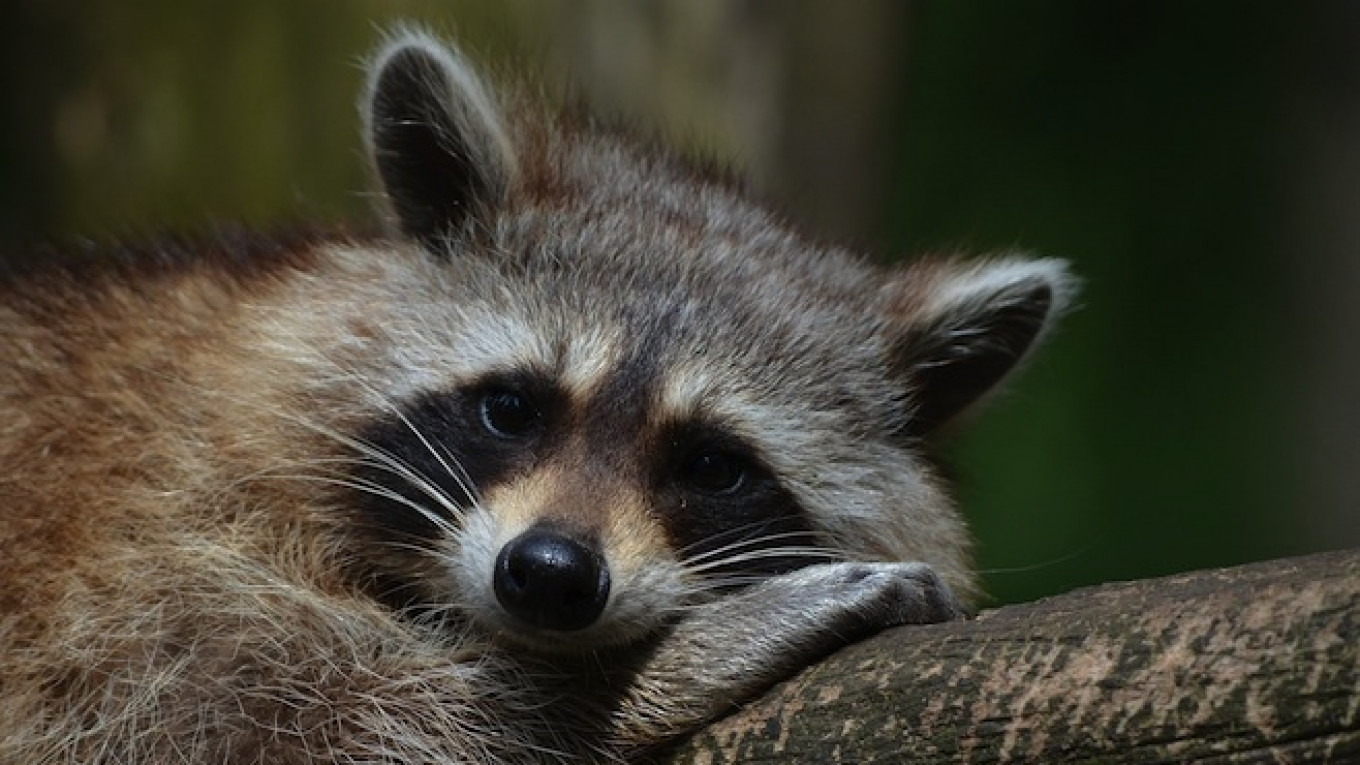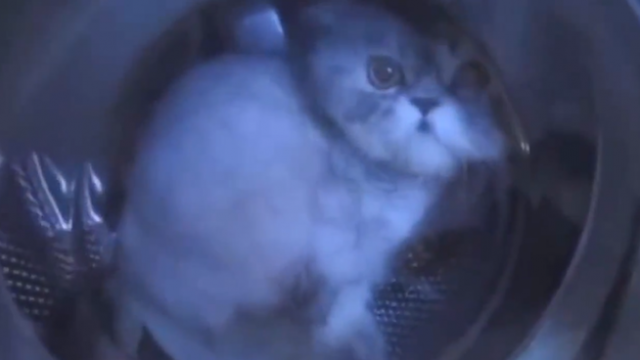In the midst of the cacophony made by a dozen children and the suffocating smell of wet wood shavings, a group of rabbits huddle together in the corner of a cage looked over by a shabby ostrich who stretches his long neck out of an enclosure. Nearby, a kangaroo sprawls on a tile floor beside a llama while a lemur huddles at the top of a plastic tree.
This is the sad atmosphere in one of Moscow's many indoor petting zoos.
The petting zoo is the latest trend in Moscow shopping centers. For about 300 rubles ($5.50), visitors get the chance to touch and feed animals ranging from fairly common house pets, like a guinea pig, to something more exotic, like an ostrich.
"It [the petting zoo business] is booming. People want to know more about animals and we are here to show them how to treat animals right," Anatoly Melnikov, the owner of the My Little World chain of petting zoos, told the Moscow Times by phone. "Once a mother confused a guinea pig with a raccoon, while her child called it a cat! We are the ones who can explain the difference."
Melnikov started his business two years ago and says that his properties have passed all state requirements and all his animals have proper vaccines.
But animal rights activists say that the very idea of petting zoos violates all veterinary, sanitary and ethical norms.
"The poor animals are at the mercy of the visitors, who touch them, drop them, constantly feed and choke them," said Irina Novozschilova, president of the VITA Center for Animal Protection. "Hundreds of visitors touching the same animal is the source of infection for both children and stressed animals. I am a biologist, I know!"
According to Novozschilova, in addition to keeping animals out of their natural habitat, many petting zoo owners are not sensitive to the biological cycles of their animals. For example, hedgehogs and owls are nocturnal, but in petting zoos they can be made available to visitors during the day.
Novozschilova is currently working to free a fur seal from the Animals Like Toys petting zoo in southeastern Moscow. Fur seals are included in the Red Book — Russia's listing of endangered species — and this one is currently being kept in a cage not much larger than its body near a small hole filled with water at the Kluchevoy shopping mall. Video on the VITA website show the seal screaming and acting aggressively.
"My heart breaks when I hear the fur seal screaming. We must help him!" Novozschilova said, adding that she has visited Animals Like Toys three times and has written complaints to the relevant state agencies and the police. She is also concerned for visitors to the petting zoo, who could be bitten by the aggressive animal. "He can also bite visitors since they have an easy access to him through the cage."
Unclear regulation
There are five governmental organizations responsible for the work of petting zoos in Moscow. Two of these — the Federal Service of Environmental Supervision and consumer protection watchdog Rospotrebnadzor — are part of the federal government while the other three — the Department of Nature Management, the Veterinary Committee and the Office of the Environmental Prosecutor — are local agencies. The agencies play overlapping roles in monitoring the zoos. One zoo displayed two documents — one from the Veterinary Committee giving permission to operate and the second from the Department of Nature stating that it had not found any violations among in the way the animals were cared for.
The Department of Nature Management told the Moscow Times that it inspected the Animals Like Toys petting zoo in the Kluchevoy shopping mall last month but did not find any violations, including in the documents for the fur seal.
VITA activists, however, say that the whole concept of petting zoos is banned under the Rules of Accident Prevention and Sanitary Norms for Zoos, which was approved in 1973. Although this law dates from the Soviet era, it has never been amended and Novozschilova says it is still valid.
According to these rules, it's forbidden for visitors to touch animals and to label wild animals as "tame."
Anatoly Melnikov said that all the animals in his zoos are tame. "They don't bite," Melnikov said. "We had a pony that was biting and we sold it to a woman. Now the pony lives at her dacha."
Even the Soviet era law is found to not apply, Novozschilova notes that a government resolution from February 1996 also forbids animals listed in the Red Book from being used for commercial purposes.
State veterinary norms also require that zoos maintain separate rooms for taking care of sick animals and manure storage, which are impossible to have within a shopping mall.
Animal therapy?
The website of Animals Like Toys includes a comment from a psychologist who says that the "animal therapy" provided by touching and feeding an animal helps children learn responsibility, love and compassion.
While its true that interaction with animals is often good for people, the petting zoo environment may not be the best example.
Yekaterina Sukhareva took her children, aged 6 and 8, to a mall petting zoo, but wouldn't do it again. "My kids and I felt bad for the animals there. The rooms and enclosures were too small. I had the feeling that everything is done just to make a quick profit." Sukhareva said she would prefer for her children to encounter animals in nature or on a farm.
Many petting zoos also let children handle animals without any instructions or supervision, which can result in small animals like chickens and rabbits being dropped or thrown.
"We must explain to kids that animals are not toys and they cannot bother them just because they want to play," Anna Kuregian, who holds the Russian equivalent of a Ph.D. in education, told The Moscow Times. "Petting zoos are just a cynical commercial and inhumane practice that nourishes in children a consumer attitude towards living creatures."
A Message from The Moscow Times:
Dear readers,
We are facing unprecedented challenges. Russia's Prosecutor General's Office has designated The Moscow Times as an "undesirable" organization, criminalizing our work and putting our staff at risk of prosecution. This follows our earlier unjust labeling as a "foreign agent."
These actions are direct attempts to silence independent journalism in Russia. The authorities claim our work "discredits the decisions of the Russian leadership." We see things differently: we strive to provide accurate, unbiased reporting on Russia.
We, the journalists of The Moscow Times, refuse to be silenced. But to continue our work, we need your help.
Your support, no matter how small, makes a world of difference. If you can, please support us monthly starting from just $2. It's quick to set up, and every contribution makes a significant impact.
By supporting The Moscow Times, you're defending open, independent journalism in the face of repression. Thank you for standing with us.
Remind me later.






